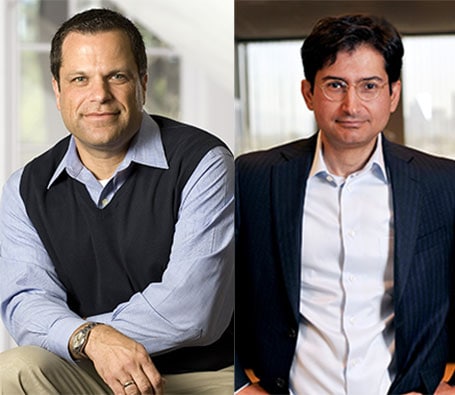Millions of patients and their families across the U.S. and globally are affected by Alzheimer’s disease and related dementias (ADRD), and the number is expected to rise in the coming decades. Although there is still no cure for Alzheimer’s disease, scientists at USC and other institutions are actively pursuing potential treatments. To help ensure that such therapies reach as many people as possible, USC School of Pharmacy faculty members Dana Goldman, PhD, and Darius Lakdawalla, PhD, are engaged in a four-year project identifying innovative reimbursement strategies.
Supported by a $2.33 million, RO1 grant from the National Institute on Aging, Goldman and Lakdawalla, who are also experts at the USC Schaeffer Center for Health Policy & Economics, are evaluating affordable ways to address the rising number of ADRD patients, including developing novel reimbursement frameworks, to ensure these patients have access when an innovative treatment becomes available. Drawing on a mix of qualitative and quantitative methods, the investigators are also enlisting experts in economics, neuroscience and clinical care to evaluate the most promising interventions. They also are utilizing USC Schaeffer Center’s pioneering Future Elderly Model microsimulation to examine the long-term health, economic, and social benefits and costs of new therapies and technologies, including the impact of different pricing mechanisms.
Because the harm caused by ADRD extends far beyond individual patients, the investigators’ examination of the social benefits and costs also incorporates the effects on family and professional caregivers.
Learn more about the USC Schaeffer Center’s ongoing research in Alzheimer’s disease and dementia. Created in partnership between the USC School of Pharmacy and USC Price School of Public Policy, the USC Schaeffer Center for Health Policy & Economics focuses on the major healthcare challenges facing the country — access, quality and cost.


